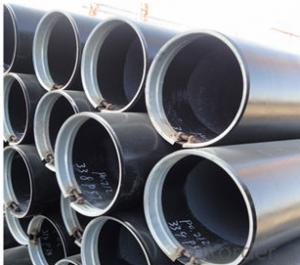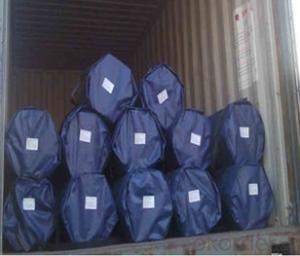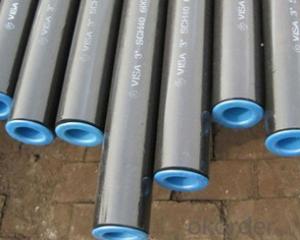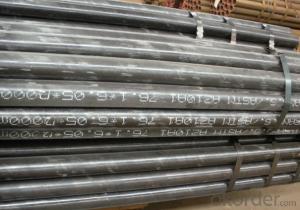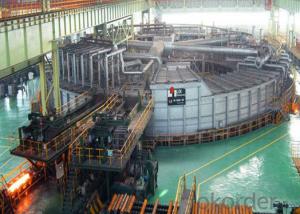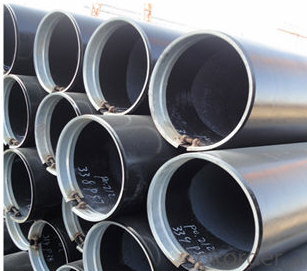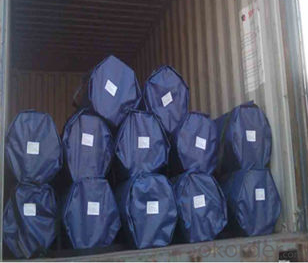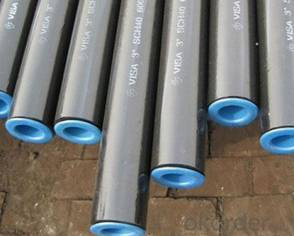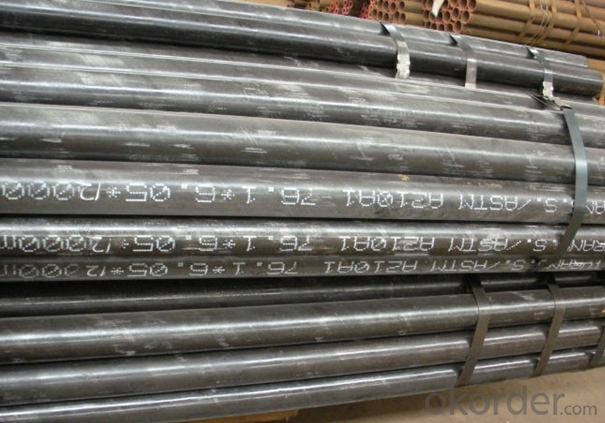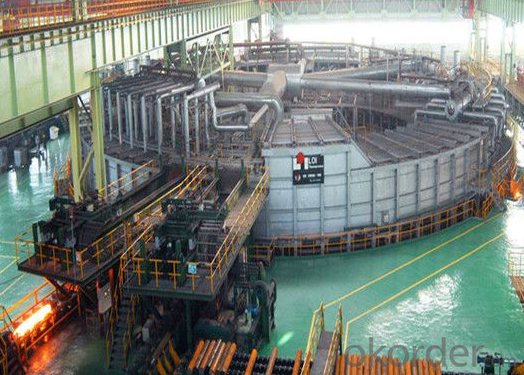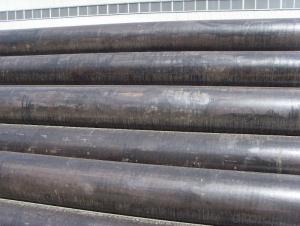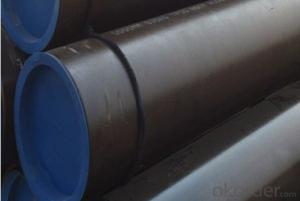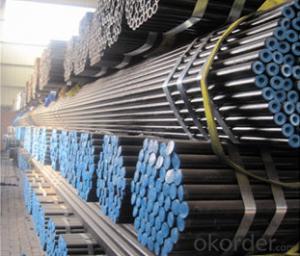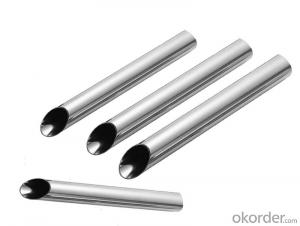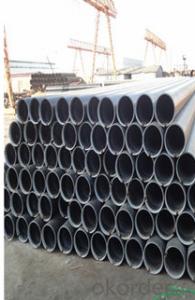High-quality Carbon Seamless Steel Pipe For Boiler Q345 CNBM
- Loading Port:
- Qingdao
- Payment Terms:
- TT OR LC
- Min Order Qty:
- 10 pc
- Supply Capability:
- 30 pc/month
OKorder Service Pledge
OKorder Financial Service
You Might Also Like
Quick Details
| Thickness: | 3 - 60 mm | Section Shape: | Round | Outer Diameter: | 21.3 - 1220 mm |
| Secondary Or Not: | Non-secondary | Application: | fluid pipe,boiler pipe, structural pipe, oil/gas/water pipe etc | ||
| Technique: | Hot Rolled | Certification: | ISO9001-2000, ISO14000, ISO18000 , API 5L | Surface Treatment: | Painted, Oiled, galvanized or phosphate etc |
| Special Pipe: | API Pipe | Alloy Or Not: | Is Alloy | Technique:: | Hot rolled or cold rolled |
| Special pipe:: | API/ ASME/thickwall/oil/gas/water pipe | Length:: | 3-12m | Treatment of two ends:: | Beveled end , plain end etc |
| Brand:: | Bai Chuan | Third Party Inspection:: | BV, SGS etc. | Schedule:: | SCH10-SCH160, XS, XXS |
| Other Material:: | 10#, 20#, 16Mn, Q345 etc | Material Type:: | Carbon steel/ Low alloy steel | Producing standard:: | American/Japanese/ German/ Britain/ Chinese standard |
| Grade: | A53(A,B),A106(B,C),A210,API J55,St37,STPG42,A53-A369,API J55-API P110,ST35-ST52 | Standard: | BS EN10296,JIS G3452-2004 |
1. Out Diameter: | 21.3mm-1220mm |
2. Wall Thickness: | 3mm-60mm |
3. Length: | 3m-12m |
4. Producing Standard: |
|
5. Main Material: (Carbon Steel & Low Alloy steel) |
|
6. Special specifications: | Available according to customer’s requirements and quantity. |
7. End Shape: | Beveled end , plain end, varnished, or adding plastic caps to protect the two ends as per customer’s requirements. |
8. Surface treatment: | Painted, Oiled, galvanized, phosphate etc. |
9. Usage: |
|
10. Certificates: | ISO9001-2000, ISO14000, ISO18000, API 5L certificate |
11. Third party inspection: | Welcome you to send a third party inspecting company (BV, SGS etc) to check the quality of our final products. |
12. Pictures: | our producing flow chart, our factory, production line, inspecting equipments, our products are listed below for your reference. |
- Q: How are steel pipes used in tunnel construction?
- Steel pipes are commonly used in tunnel construction for various purposes. They are used to provide structural support by acting as reinforcements or casings for the tunnel walls. Steel pipes also serve as conduits for utilities such as water, gas, and electricity within the tunnel. Additionally, they can be used for ventilation and drainage systems, ensuring a safe and functional environment inside the tunnel. Overall, steel pipes play a crucial role in the construction and functionality of tunnels.
- Q: What is the typical diameter range for steel pipes?
- The typical diameter range for steel pipes can vary depending on the specific application and industry requirements. However, in general, steel pipes can have diameters ranging from as small as 0.5 inches (12.7 millimeters) up to several feet (over a meter) in diameter. The most commonly used steel pipes for various purposes, such as plumbing, construction, and transportation of fluids or gases, typically fall within the range of 1/2 inch (13 millimeters) to 36 inches (914 millimeters) in diameter. It is important to note that larger diameter steel pipes are often used for industrial applications, such as oil and gas pipelines, while smaller diameter pipes are commonly used for residential and commercial plumbing systems.
- Q: How to make the magnetic steel, can be like a magnet?
- Of course, not all materials can be magnetized, austenitic stainless steel will not do.
- Q: Can steel pipes be coated for additional protection?
- Yes, steel pipes can be coated for additional protection. Coating the pipes helps to prevent corrosion, enhance durability, and improve resistance to various environmental factors.
- Q: What are the different types of steel pipe fittings for gas pipelines?
- There are several types of steel pipe fittings commonly used for gas pipelines, including elbows, tees, reducers, couplings, flanges, and valves. These fittings are essential for connecting and controlling the flow of gas within the pipeline system.
- Q: What is the buckling type thin-wall steel pipe? What is a tight set of thin-walled steel tubes? What's the difference between the two?
- The wire pipe thread (box, cup lock fastening points) (JDG) and buckling type (KBG) two. Products are made of high-quality steel pipe, through precise stamping molding, supply pipe and terminal box connection. The nut is hexagonal, and the convex point is punched at the six corner so as to form a good multi-point contact after being connected with the junction box.
- Q: How do steel pipes perform in marine environments?
- Steel pipes perform well in marine environments due to their high strength, corrosion resistance, and durability. They are able to withstand the harsh conditions of saltwater, waves, and extreme temperatures, making them an ideal choice for various marine applications such as offshore oil and gas drilling, shipbuilding, and coastal infrastructure. Additionally, steel pipes can be coated or galvanized to further enhance their resistance to corrosion, ensuring their long-term performance and reliability in marine environments.
- Q: How are steel pipes used in the construction of wind farms?
- Steel pipes are commonly used in the construction of wind farms to support and secure the wind turbines. These pipes serve as the foundation for the turbines, providing stability and structural integrity. They are used to create the tower structure, which supports the nacelle and rotor blades. Additionally, steel pipes are used for transporting and distributing the electrical cables within the wind farm, ensuring efficient transmission of electricity generated by the turbines.
- Q: Can steel pipes be used for transporting chemicals?
- Yes, steel pipes can be used for transporting chemicals. Steel pipes are known for their high strength and durability, making them suitable for handling various chemicals, including corrosive substances. Additionally, steel pipes can withstand high pressure and temperature conditions, ensuring the safe transportation of chemicals. However, it is essential to select the appropriate grade of steel and implement proper coating or lining to prevent chemical reactions or corrosion that may compromise the integrity of the pipes.
- Q: What is the difference between internal threading and external threading of steel pipes?
- Internal threading and external threading are two different methods used to create threads on steel pipes. The main difference between them lies in the location of the threads. Internal threading refers to the process of cutting threads on the inside surface of a steel pipe. This method involves using a tool or a die to remove material from the inner diameter of the pipe, creating a helical groove. The resulting threads can be used to connect the pipe to other components, such as fittings or valves. On the other hand, external threading involves cutting threads on the outside surface of a steel pipe. This process usually requires the use of a threading die or a lathe to remove material from the outer diameter of the pipe, leaving behind a helical groove. The external threads allow the pipe to be connected to other components or fittings that have corresponding internal threads. The choice between internal and external threading depends on the specific application and the requirements of the project. Internal threading is often preferred when the pipe needs to be connected to components that have external threads, such as fittings or valves. External threading, on the other hand, is typically used when the pipe needs to be connected to components with internal threads, or when the pipe is intended to be screwed into a threaded hole or coupling. In summary, the main difference between internal threading and external threading of steel pipes is the location of the threads – internal threads are cut on the inside surface of the pipe, while external threads are cut on the outside surface. The choice between these methods depends on the specific application and the type of connections required.
Send your message to us
High-quality Carbon Seamless Steel Pipe For Boiler Q345 CNBM
- Loading Port:
- Qingdao
- Payment Terms:
- TT OR LC
- Min Order Qty:
- 10 pc
- Supply Capability:
- 30 pc/month
OKorder Service Pledge
OKorder Financial Service
Similar products
Hot products
Hot Searches
Related keywords
